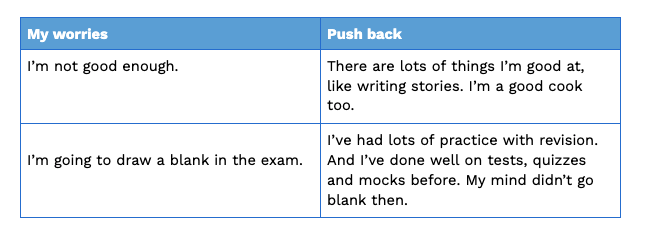We all make mistakes. It might not seem like it at the time, but mistakes and setbacks can actually help you out. But let’s be honest- we still feel pretty crummy about them. We might think, ‘Oh, I’m stupid,’ or, ‘I should’ve known better,’ when we stumble.
The real danger of mistakes and setbacks is letting them stop you from trying new things. So before you throw in the towel, let’s look at why mistakes are actually good for you.
1. You can learn more deeply when you make mistakes.
When things are going smoothly, your brain usually coasts on auto-pilot. But mistakes make us pause and ask questions. When you ask yourself, ‘Why didn’t this work out?’ and, ‘What else can I try?’ you’re thinking about the problem more deeply. Anytime you look at a challenge from a different angle, you’re giving the creative thinking part of your brain a workout. Some of the best inventions and discoveries (like life saving medicine penicillin) have come from ‘mistakes’. Out-of-the box thinking usually happens when we’re backed into a corner. So the next time you think you’ve really messed up, just think– you might have accidentally stumbled on some great new idea.
2. Setbacks can make you more flexible.
There’s always going to be another challenge around the corner. So when you’re faced with a setback and come out the other side of it, celebrate this small win. When another challenge comes up, remind yourself that you were able to get through hard times before. Being OK with challenges makes you more comfortable with the idea of change too. You’re more likely to experiment and take risks when you’re not afraid of making mistakes. Universities and employers are looking for people who are flexible and who see challenges as opportunities.
3. You get to know yourself better through mistakes.


Mistakes and failures can be uncomfortable. They bring up some deep questions that you might otherwise not think about. Questions like, ‘Why is this thing important to me?’ and ‘What do I believe about myself?’ We can be really hard on ourselves when we think we’ve failed. That’s when you can challenge your negative thoughts through this simple writing exercise.
Draw a line down the middle of a page. On one side of the page, you can write down all your troubling thoughts. And on the other side, you can challenge them. Like this example:


This super simple exercise can help you question those negative thoughts and can help reassure yourself.
4. Mistakes can help you become more understanding.
No one is perfect. In fact, you probably feel the opposite when you’ve made a mistake. Stumbling can actually help you be more forgiving when others do the same. Maybe you left your sister’s favourite jumper on the bus. Or you were super late meeting your friend for lunch. The next time someone makes a mistake, remember how glad you were when others gave you a break. Being understanding like this helps make your relationships with friends and family a lot stronger. And it means you can be more forgiving to yourself.
You’ll probably make at least a hundred more mistakes in your life– so give yourself a break. You’re only human after all! If you face a setback and feel crummy about it, that’s OK. Let those feelings of disappointment come up. Just remember that you’ve come out the other side before– and you’ll do it again. Check back next week for advice on how to make mistakes feel normal.




